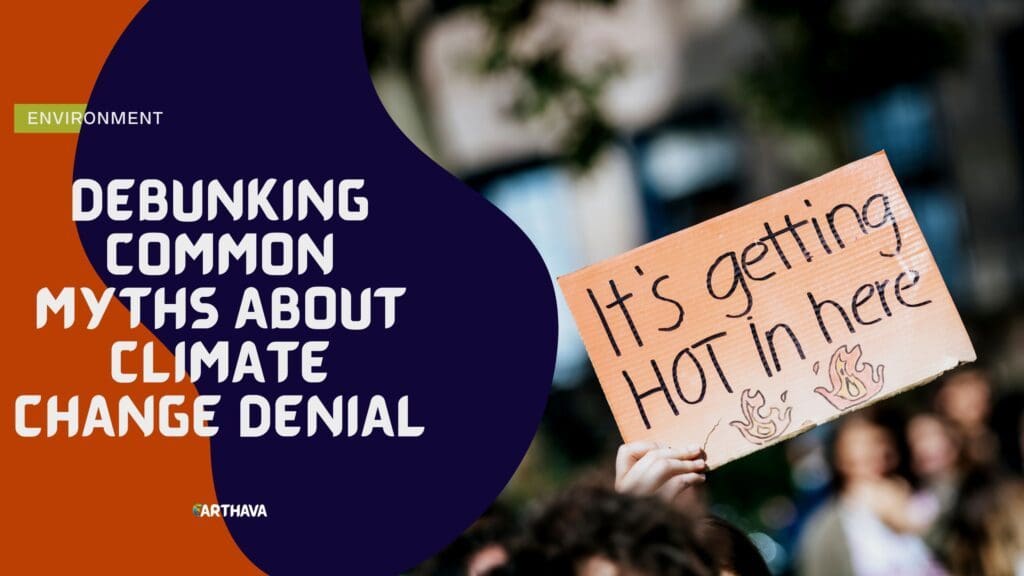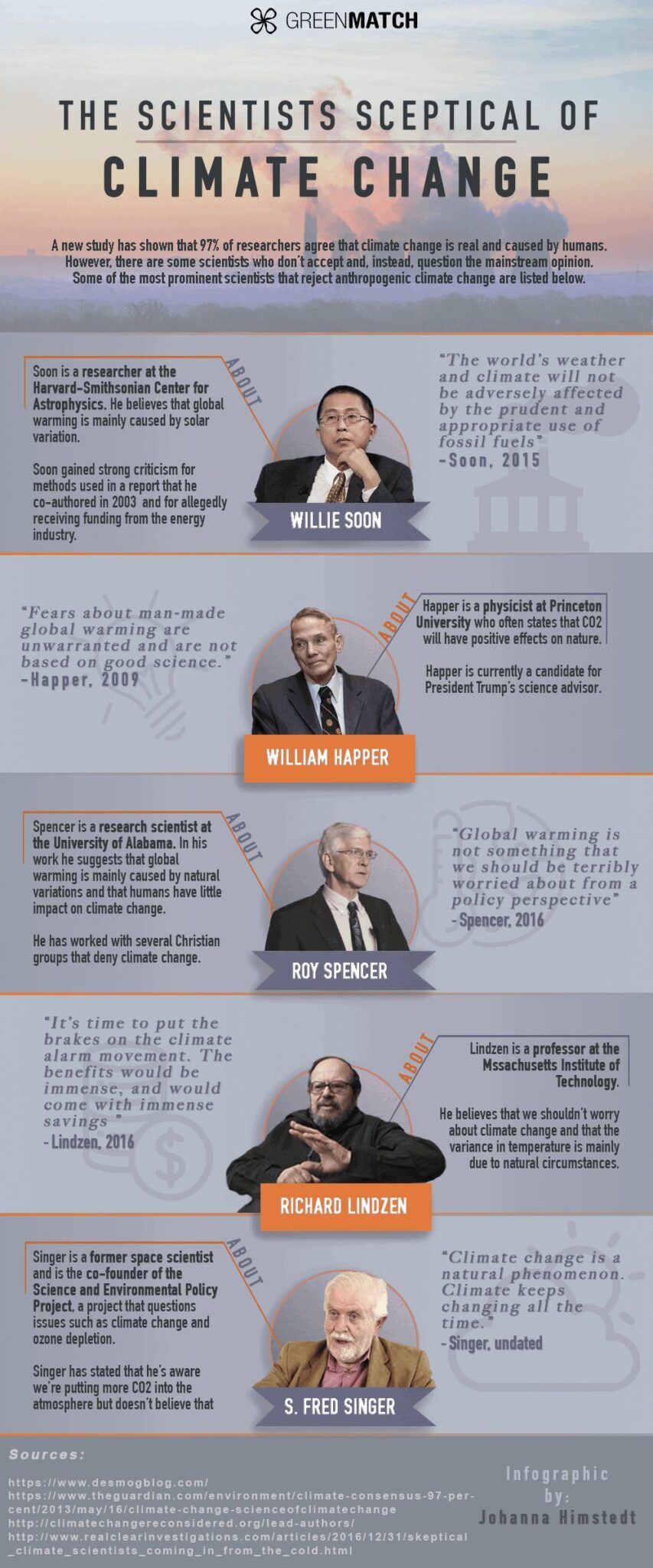A study has shown that 97% of researchers believe that climate change is human-induced and an imminent threat to our planet. 1200 peer-reviewed articles were examined in the study, revealing that only around 3% were written by climate skeptics.

So, who are the 3%?
We’ve heard many outrageous and controversial claims from politicians and public figures such as the current United States President, Donald Trump.
This very expensive GLOBAL WARMING bullshit has got to stop. Our planet is freezing, record low temps,and our GW scientists are stuck in ice
— Donald J. Trump (@realDonaldTrump) January 2, 2014
But, the research that many base their argument on comes from actual scientists.
Most of them share the common opinion that global warming is happening but isn’t caused by humans or threatening enough to act on. Some also believe that climate change isn’t happening at all or state that an increase in CO2 will have positive effects on our environment, like the scientist, William Happer.
I can’t think of any benefits for reducing CO2 emissions. CO2 is not a pollutant. […] Almost all plants grow better and are more drought-resistant with two to four times more CO2 than now. William Happer, 2016
To summarize the claims and beliefs of the most prominent researchers who reject the Intergovernmental Panel on Climate Change (IPCC), GreenMatch UK created an informative and comprehensive infographic.

The arguments used by these scientists and other climate change skeptics usually follow a similar pattern.
Many argue that mainly natural causes like solar variation, contribute to climate change. According to NASA, the sun did indeed cause ice ages and significant changes in the climate before but, there have been several factors that prove that this isn’t the case today. For instance, NASA mentions that if the sun was responsible for climate change we would see a change in temperature in all layers of the Earth and that only the lower parts of our atmosphere have been warming.
In addition, as mentioned above, many scientists argue that CO2 will have positive effects on our planet because plants need CO2 to grow and to become resistant to change.
According to the Grantham Institute, the problem with this is that, yes, crops might grow better due to increased levels of CO2 but the increased temperatures that CO2 brings could also harm crops. For example, more extreme weather events like droughts could stress and destroy maize crops.
Additionally, many of the scientists above stated that there has been a little bit of warming but that we shouldn’t be too worried. But, should we really just ignore it?
Truth is, no one can predict what the future will bring exactly but, if we’re not too sure, should we risk it? If we wait until we’re 100% certain that human-induced climate change is happening, it might be too late.
The following infographic summarizes some of the most common arguments from climate skeptics and the facts that debunk them.

All in all, most research supports the theory that climate change is real and caused by humans. However, we’ll continue to struggle with implementing policies that fight climate change if some of the most powerful scientists and politicians remain skeptical.
The real questions that we should ask them are: Should we really risk the future of our planet? Should we really wait with adaptation and mitigation strategies until we’re 100% sure that anthropogenic climate change is happening or, will it be too late?


